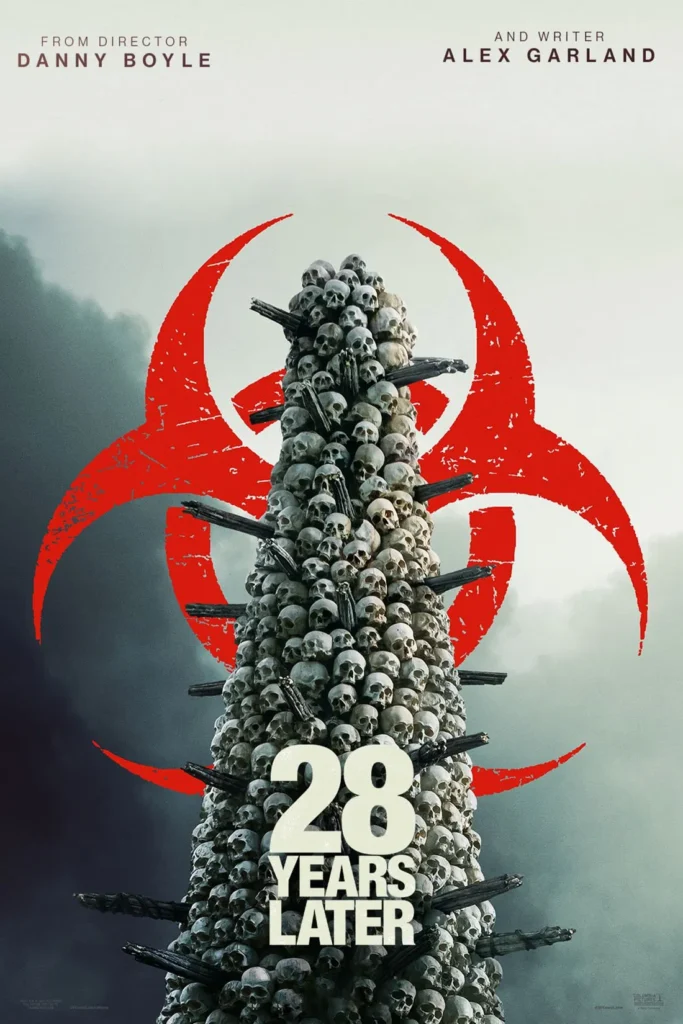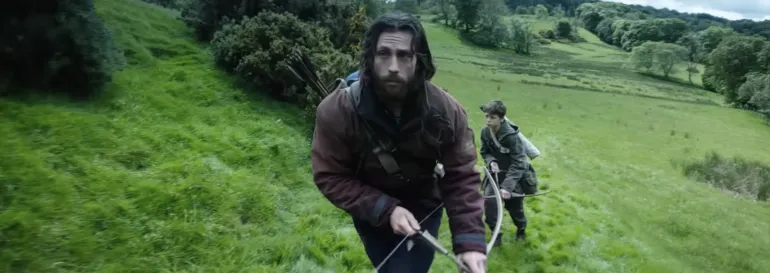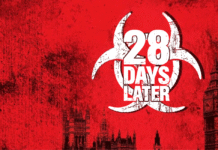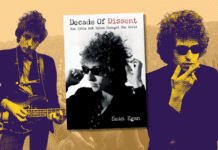Let’s Do the Apocalypse Again, Shall We?
Because apparently two pandemics and an actual real-life plague weren’t enough to satisfy our collective thirst for misery, 28 Years Later crashes onto screens in 2025 like a molotov cocktail lobbed through the window of a crumbling NHS clinic. And, yes, it’s exactly what it sounds like: the third installment in a franchise so dedicated to despair that its last film ended with all hope shriveling up and dying somewhere around Wales.
Danny Boyle is back. So is Alex Garland. And presumably, so is the Rage Virus, the cinematic equivalent of a middle-aged man still clinging to the glory days of his first pub brawl.
This time, it’s not just 28 Days or 28 Weeks – it’s 28 Years Later, which means the infected are now old enough to vote, drink, and possibly become Prime Minister, assuming they’re not already foaming at the mouth in a leadership position.
Table of Contents

The Plot: Don’t Call It a Comeback (It’s a Contagion)
Here’s the setup: Britain, or what’s left of it, is still about as inviting as a public toilet in a bus station during a sewage strike. The mainland has been quarantined for nearly three decades, because apparently nobody figured out how to fix a country-wide case of blood-spewing rage zombies. Survivors live on an island, clinging to civilization like a soggy plaster on a gangrenous limb.
And then, because someone always has to poke the bear, a guy ventures back to see if the old place has “recovered.” Spoiler: it hasn’t. The virus is back. Or maybe it never left. Maybe it’s been lurking in the damp shadows of a crumbling Tesco, waiting for a dramatic entrance.
Cue chaos, death, and the kind of bleak social commentary that makes you question whether human civilisation deserves to be rebooted at all.

The Cast: Britain’s Bleakest Dream Team
You know you’re in for a good time when your cast list reads like the BAFTA answer to an Avengers line-up, but instead of superpowers, everyone’s armed with trauma and a strong jawline.
- Jodie Comer plays a scientist, a rebel, or just someone smart enough to look constantly horrified—probably all three. Expect her to carry every scene like a woman silently re-evaluating all her life choices.
- Aaron Taylor-Johnson reportedly plays a man searching for medical help for his mother. In post-apocalyptic Britain. Might as well ask a Rage-infected for directions to the nearest Waitrose.
- Ralph Fiennes, eternally looking like he just lost faith in humanity five minutes ago (and rightly so), brings his usual gravitas. Odds are he’s a morally conflicted doctor or a government bureaucrat with a clipboard and a body count.
- Cillian Murphy returns. As who? Unclear. Maybe Jim. Maybe a ghost. Maybe a hallucination triggered by eating a 28-year-old tin of beans. Either way, he’ll look fabulous doing it.
Shot on an iPhone: Artistic Choice or Techno-Dystopian Gimmick?
Boyle, clearly high on nostalgia and possibly Apple product fumes, chose to shoot this one on an iPhone 15 Pro Max. This could either be a genius return to the gritty, lo-fi aesthetics of the original film, or just a very long TikTok with extra decapitations.
Expect every scene to look like a found-footage fever dream, complete with shaky camera angles, claustrophobic lighting, and the occasional moment where you wonder if someone’s accidentally activated portrait mode mid-massacre.
Themes: Rage Virus as Metaphor for Modern Life (Again)
Let’s be honest. The Rage Virus was always less “zombie movie gimmick” and more “brutally unsubtle metaphor for the human condition.” What is it this time?
- Societal breakdown? Check.
- Governmental apathy? Double check.
- A populace incapable of learning from past trauma? Triple check and pass the bat.
We live in a world where millions watched the original 28 Days Later and still thought “Well, that seems manageable.” This film arrives like a haunted mirror, forcing us to stare at our own faces and realise: “Ah yes. We would absolutely do it all again, wouldn’t we?”

Nostalgia Is a Hell of a Drug
28 Years Later isn’t just a sequel—it’s a legacy sequel. That’s Hollywood-speak for: “We found the old IP lying around and thought, ‘Why not?’” But Boyle and Garland aren’t just phoning it in. They’re opening the Pandora’s box of our shared trauma, filming it in HD, and setting it to a disturbing synth soundtrack.
Unlike other franchises (cough every horror reboot ever cough), 28 Years Later actually feels like a logical continuation. Not because we want more, but because the story demands it. The Rage Virus is too good of a metaphor to let rot. It’s Brexit, climate collapse, and TikTok-fueled doomscrolling in viral form. Infectious rage as the natural state of man? Seems legit.
Comparisons With the Previous Films: Now With Less Hope!
- 28 Days Later gave us sprinting zombies, bleak landscapes, and a main character who looked like he hadn’t eaten in… well, 28 days.
- 28 Weeks Later ramped it up with helicopter decapitations and the worst father in cinematic history. It was more bombastic but somehow less intimate.
- 28 Years Later promises the emotional trauma of the first, the explosive action of the second, and a fresh coat of existential dread layered on top like jam on burnt toast.
This time, we’re not just watching a world fall apart. We’re watching the long-term consequences of leaving it broken and hoping it’ll fix itself. Spoiler: it doesn’t.
Why You’ll Probably Watch It Anyway
If you’ve ever:
- Fantasised about how you’d survive the end of the world (and secretly hoped it’d make you look cool),
- Felt society teetering on the edge and thought “Yeah, I’ve seen this film before,”
- Or just want to see some infected bloke smash through a wall and vomit blood on a priest,
…then 28 Years Later is your movie.
Also, what else are you going to do? Watch another Marvel thing?

28 Years Later
Isla
Spike
Jamie
Dr. Ian Kelson
Erik Sundqvist
Sam
Jenny
Samson





















